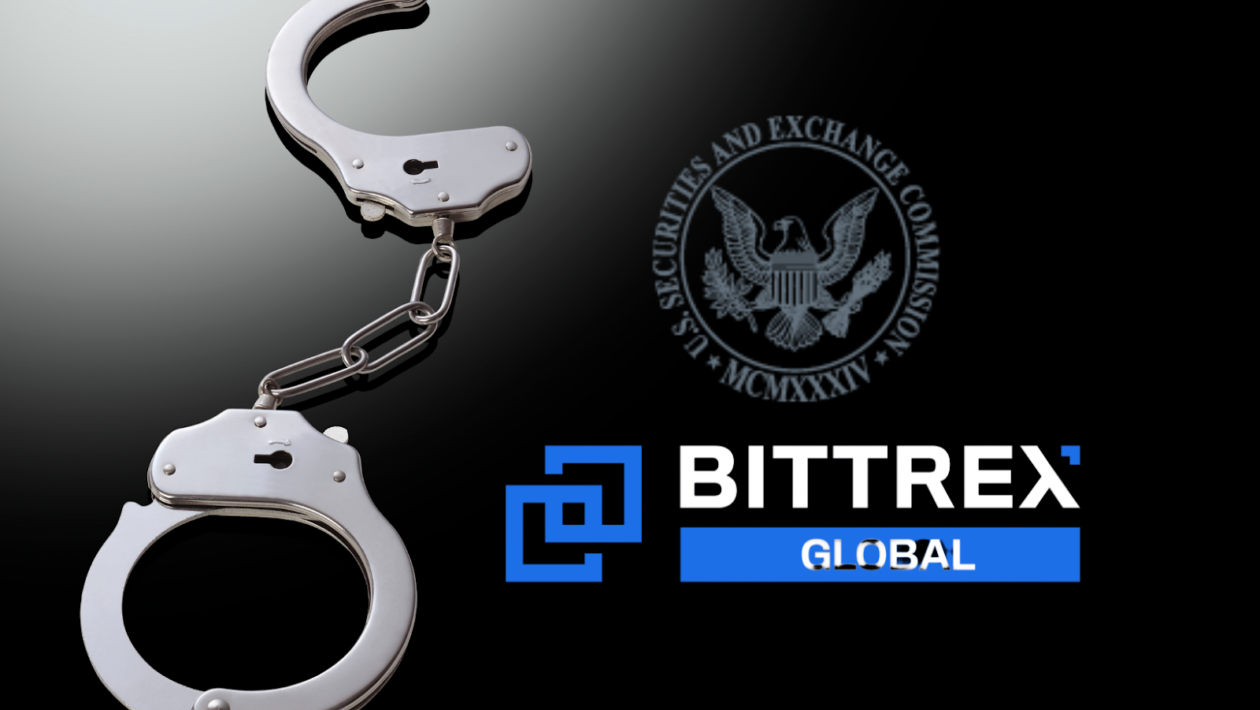In this issue
- Bittrex: Lawyer up
- Bored Apes: Monkey wrench
- Hong Kong: Crypto courtship
From the editor’s desk
Dear Reader,
We’ve heard much talk of a “new normal” in the context of the Covid-19 pandemic and learning to live with the virus. Are we also witnessing the emergence of a new normal in crypto?
If the list of U.S. regulatory actions against crypto companies continues to lengthen, it’s arguable that we are. The lawsuit brought against exchange Bittrex this week by serial crypto prosecutor, the Securities and Exchange Commission, only adds to the impression that the new normal for crypto businesses in the Land of the Free is compliance through enforcement, and that comprehensive, thoughtful regulation has taken a back seat to a form of regulatory Whac-a-Mole.
Meanwhile, Hong Kong continues to roll out the welcome mat for crypto, its announcement of a regulatory framework for the industry having been followed by a series of boosts in the form of both official moves and purely commercial initiatives ― such as the recent news that banks in the territory are actively courting the business of crypto companies.
Hong Kong was home to a thriving crypto industry before regulatory ill winds blew in and authorities took a tough line on it, sending a number of crypto businesses scurrying for the exit. Now, however, the city’s policy pendulum has clearly swung back in crypto’s favor, and there’s every reason to believe that regulators are seeking to carve out their own new normal to support ― with guidance ― the development of the sector.
Hong Kong’s new approach is to be welcomed as a demonstration of how China could deal with the crypto industry, but Beijing picked a side long ago, and the industry’s development on the mainland will remain stunted for the foreseeable future.
So what of the other crypto mega-market, India? The signs are that after much internal official disagreement and the occasional desultory move, such as the 30% tax it slapped on crypto capital gains last year, New Delhi may be seeking a new normal not only for India but also for the rest of the world.
India’s presidency of the G20 this year certainly affords it the opportunity to establish itself as a leading voice in crypto regulation, with G20 finance ministers and central bank governors having tasked the International Monetary Fund and the Financial Stability Board with drafting a global policy approach to the industry.
India has argued that any global policy framework for crypto must extend beyond mere regulation and supervision to address the macroeconomic dimensions of crypto. In so doing, New Delhi appears to be aiming for an end to regulatory arbitrage, and, by extension, the sort of approach to the industry that we seem to be witnessing in Washington.
Joined-up policymaking is difficult within countries, let alone across them, but if what emerges from the IMF and FSB during India’s G20 presidency gets us a step closer to the kind of sensible, predictable regulatory framework the sector needs to thrive, that’s a new normal we’d happily live with.
Until the next time,
Angie Lau,
Founder and Editor-in-Chief
Forkast
1. SEC reloads

The U.S. Securities and Exchange Commission is continuing to take aim at the crypto industry, charging crypto exchange Bittrex for allegedly violating federal securities laws. Bittrex had already announced that it would wind down its U.S. business.
- The SEC is accusing Bittrex and its co-founder and former Chief Executive William Shihara of operating as “an unregistered national securities exchange, broker, and clearing agency,” according to a press release. Bittrex Global GmbH, Bittrex’s foreign affiliate, was also charged with U.S. securities law violations.
- The commission accuses Bittrex of earning revenue of at least US$1.3 billion from 2017 to 2022 by servicing investors without proper SEC registration.
- Six cryptocurrencies ― Dash, Algorand, OMG, Monolith, Naga and IHTReal Estate Protocol ― are listed in the SEC’s civil complaint as crypto asset securities. The regulator said two weeks ago that “virtually all, if not all, crypto tokens are securities and … they, as well as the platforms and custodians dealing with them, are subject to regulation under the federal securities laws to protect investors.”
- The SEC is seeking an order to prohibit Bittrex from providing crypto securities services to U.S. investors unless the company completes registration with the commission. It is also suing for civil financial penalties.
- “Today’s action, yet again, makes plain that the crypto markets suffer from a lack of regulatory compliance, not a lack of regulatory clarity,” SEC Chair Gary Gensler said in the press release.
- Bittrex tweeted on Tuesday to express its disappointment at the SEC’s action, saying the move against it was part of Gensler’s “larger crusade to drive cryptocurrency out of the United States.” Bittrex said it had asked the SEC multiple times in the past five years to identify digital assets on its platform that it regarded as securities, but that the regulator had refused to do so.
- Bittrex Global said in a separate statement that the company had no U.S. customers and that it would vigorously contest the SEC’s allegations.
- Besides Bittrex, crypto companies including Kraken, Coinbase and Paxos have also faced SEC enforcement action this year, exposing divisions within the commission’s leadership. In a statement entitled “Rendering Innovation Kaput,” SEC commissioner Hester Peirce last week criticized the regulator’s proposal to expand the definition of exchange to include decentralized platforms that trade cryptocurrencies, describing it as an effort to stymie the development of new technology.
- Gensler spoke before Congress on Tuesday on his approach to regulating digital assets and repeatedly ducked questions put by Financial Services Committee Chair Patrick McHenry (R-NC) on whether Ether was a security or a commodity. Rep. Warren Davidson (R-Ohio) said on Sunday the SEC needed to be restructured and is reportedly planning legislation that would include removing Gensler from his role as chairman.
Forkast.Insights | What does it mean?
The SEC’s latest clampdown, on Bittrex, suggests that most crypto exchanges operating in the U.S. are probably, in the SEC’s view, breaking the law.
Last month, the SEC sent a Wells Notice to Coinbase, telling the exchange it would bring charges against it for operating an illegal securities exchange. Before that, the SEC forced Kraken, another exchange, to shutter its U.S. operations for security violations. More recently, the commission sued crypto entrepreneur Justin Sun for alleged securities law violations.
While U.S. regulators have been tightening the legal vise on crypto exchanges, the bigger story is that the SEC is increasingly training its sights on cryptocurrencies themselves. In the SEC’s complaint against Bittrex, the regulator suggested the company broke the law because it “transacted in a single crypto asset security.” The complaint listed six currencies traded on the exchange ― ALGO, DASH, IHT OMG, NGC and TKN ― as examples of “crypto asset securities.” The SEC describes the six as a “non-exhaustive list,” which suggests that it will be taking legal action against other cryptocurrencies.
The SEC believes the foundations that operated those cryptocurrencies sold tokens to investors on the basis they would lead to a profit, meaning they qualify as securities. Although separate charges haven’t been filed in connection with the six tokens, their designation as securities could be used to bring formal charges against Coinbase and other U.S.-based exchanges that also list the coins.
2. Whale tale

The floor price of Bored Ape Yacht Club (BAYC), the world’s largest non-fungible token (NFT) collection by market cap, dropped to its lowest level since November 2022 on Wednesday after a prominent holder announced they were quitting the NFT space and sold about US$3 million of their collection.
- Pseudonymous BAYC holder and proponent “franklinisbored” tweeted last week that he would step away from NFT trading, and that he had sold a sizeable portion of his NFT holdings.
- According to data from NFT marketplace OpenSea, franklinisbored has sold at least 33 BAYC NFTs since April 13 and is currently holding only one BAYC token.
- Franklinisbored tweeted last week that he had been rug-pulled in an investment in which he had put up some 2,000 ETH (about US$4.2 million), forcing him to liquidate his NFT holdings. Franklinisbored appears to have since deleted his Twitter account.
- The floor price of BAYC fell from more than 57.4 ETH last Thursday to around 49.8 ETH this Wednesday, a drop of over 13%. The current floor price of BAYC is 52.20 ETH, according to data from CoinGecko.
- BAYC has seen the largest sales volume among all NFT collections in the past seven days, totaling over US$13.2 million, an increase of over 84% from the previous seven-day period, according to data from CryptoSlam at press time.
- The price wobble following the withdrawal of a single whale highlights the volatility risk of BAYC and other NFT collections. BendDAO, an NFT-backed borrowing platform that allows users to use NFTs as collateral to borrow ETH, has put 252 out of 379 staked BAYC NFTs on its Health Factor Alert List, meaning that the assets are likely to be liquidated at auction.
Forkast.Insights | What does it mean?
When the floor price of one of the world’s most popular NFT collections drops significantly upon just one big owner selling off their assets, it tells you two things.
The first is that the investor spread is surprisingly shallow in the NFT world. While estimates suggest there are around 360,000 NFT owners, just 9% of them hold 80% of the entire NFT market’s value.
The second is the disproportionate ripple effect that results when anyone among that 9% of holders decides to liquidate their assets. Although the floor price shifted 6% on news of franklinisbored selling, the effect was felt more strongly in the adjacent NFT borrowing market.
NFT lending, now a US$400-million dollar industry, uses high-value NFTs as collateral on loans, but drops in floor prices are hard on lenders, which are left picking up the pieces of their now undercollateralized loans. Although this isn’t the first time leveraged NFTs have caused a cascade of liquidations, it’s unlikely to be the last.
That’s because the NFT market, despite its recent recovery from the lows of late 2022, has started to show cracks. Wash trading has become endemic, marketplaces are engaged in a race to the bottom, often at the expense of the creators of NFTs, and regulators are beginning to take note. While the crypto industry at large is facing challenges, the NFT market will likely face more rocky times ahead.
3. Eye for an opportunity

Banks in Hong Kong ― including the local operations of lenders headquartered in mainland China ― are reaching out to service cryptocurrency companies as the city seeks to redevelop itself into a global Web3 hub.
- ZA Bank, the city’s largest online-only lender, is working with HashKey and OSL ― so far the city’s only two licensed crypto exchanges ― to allow customers to withdraw crypto deposits in U.S. dollars, Hong Kong dollars and Chinese yuan, according to a Bloomberg report. The lender is backed by ZhongAn Online P&C Insurance, an online-only insurance company based in China whose founders include Chinese tech giants Tencent and Ant Group.
- However, the crypto conversion service is not accessible for the banks’ customers in mainland China, where mainland authorities have banned cryptocurrency trading since September 2021.
- Earlier this year, the Hong Kong branches of Chinese banking giants Bank of Communications, Bank of China and Shanghai Pudong Development Bank also started to offer services to local crypto firms or made inquiries about doing so.
- SEBA Bank, a Switzerland-based crypto lender, opened an office in Hong Kong last November to expand its business in the Asia-Pacific region and is seeking to obtain a license in Hong Kong following a surge in Asian customer after the collapses of crypto-friendly banks in the U.S., according to a Wall Street Journal report.
- Despite a series of high-profile scams and company implosions that devastated the global crypto industry last year, policymakers in Hong Kong have decided to remake the city into a global hub for Web3 development. Hong Kong authorities are laying out a new regulatory framework to open up cryptocurrency trading again to retail investors. The city has also already attracted at least 80 foreign or mainland Chinese companies that have expressed interest in building crypto-related businesses in Hong Kong.
- The Hong Kong Monetary Authority, the semi-autonomous Chinese territory’s de facto central bank, will host a special meeting between cryptocurrency firms and bankers on April 28 to help improve liquidity in digital asset businesses, according to a Bloomberg report.
- Despite China’s waves of anti-crypto crackdowns and the outlawing of crypto mining and trading on the mainland, Beijing appears to be wholly supportive of Hong Kong’s pro-crypto initiatives. Last Tuesday, Hong Kong launched the Hong Kong Institute of Web 3.0, a non-profit organization dedicated to collaboration and standards in the city’s Web3 industry, news of which was posted on a blog by China’s local representative office.
Forkast.Insights | What does it mean?
With Hong Kong’s new regulatory regime for crypto trading expected to take effect in June, banks with operations in the territory are now seeing tremendous business opportunities to serve the increasing number of Web3 companies that are moving to or expanding in the city.
Not that long ago, it was difficult for crypto companies to even open bank accounts in Hong Kong. But with Hong Kong’s government now actively promoting and supporting the sector, many banks, including Chinese state lenders, are now embracing crypto firms as new clients.
HashKey Group, a Hong Kong-headquartered crypto service provider, announced last week that it would launch a new licensed exchange named HashKey Pro in the second quarter of this year. ZA Bank, a virtual bank in the city backed by Chinese online insurer ZhongAn, will serve as the settlement bank for HashKey to facilitate deposits and withdrawals of fiat currency.
It’s interesting to note that Hong Kong’s renewed crypto embrace has gained official support from Beijing, notwithstanding the mainland’s ban on cryptocurrency transactions
As the collapses of crypto-friendly banks in the U.S. leave a void in the market, the banks in Hong Kong can now step up, as Hong Kong repositions itself as an international digital asset hub. The fact that Hong Kong regulators are actively bringing together crypto firms and bankers this week, to facilitate more business relationships between the two sectors, underscores the city’s drive and progress toward that goal.




